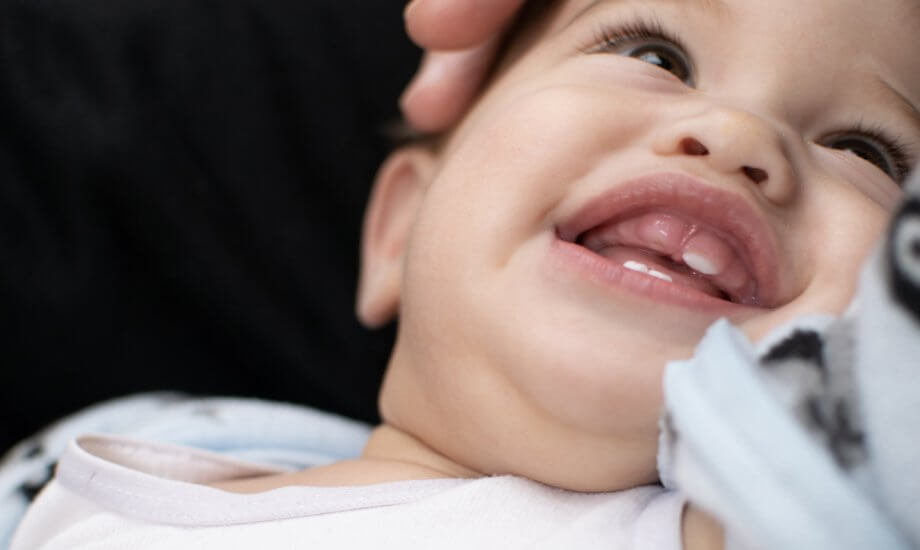We get so excited to see that first little tooth poke its way out of our baby's gums, but as all parents know, the process of getting to that point with teething problems can be rough. Seeing our little ones in discomfort, feeling unsure of how to soothe their cries, and trying to keep them from putting everything they can get their hands on into their mouths––these are the hallmarks of teething.
Here's what you need to know about your baby’s first teeth.
When Do Babies Start Teething?
Teething is a long process, so while teeth don't begin to emerge until a baby 4-7 months old, you may begin to see signs of teething well before that first tooth appears. Around the age of 2, all of your child's baby teeth should have erupted.
What Are the Signs of Teething?
The telltale sign of teething is drooling. Your baby will start drooling a lot more than usual, even soaking through a few bibs each day. To soothe their itchy gums, babies will gnaw on their toys, hands, blankets, and anything else within arms' reach.
As teeth near eruption, you'll see an increase in fussiness and irritability. A baby who was previously a good sleeper may start waking up several times a night again or have trouble falling asleep. Loss of appetite is a typical sign of teething too.
It's an old wives' tale that fever and diarrhea are symptoms of teething. According to the American Dental Association, these are not normal signs of teething; if your baby has either of these symptoms or a rash, you should call your pediatrician. Because teething babies have a habit of putting their mouths on things, it's easier for them to pick up stomach bugs and other viral illnesses, which may be why many people believe runny noses, fever, and diarrhea are associated with teething.
Are There Ways to Soothe Teething Problems?
Do not use homeopathic teething products for your baby––the FDA cautions against them. The FDA also advises parents to avoid teething gels and creams that contain benzocaine and teething jewelry, which poses a choking hazard.
So what can you do to help a teething child? A firm rubber teething ring is the best option. You can also use a clean finger to gently massage your baby's gums. Cold pacifiers and clean washcloths soaked in cool water can provide comfort too. If these options do not help, contact your child's pediatrician––they may recommend a small dose of a children's pain reliever like ibuprofen or acetaminophen.
When Should Babies Start Seeing a Dentist?
We recommend starting good oral hygiene habits even before a baby's first tooth emerges. Use a small wet washcloth to clean gums morning and night, then switch to a soft silicone toothbrush as teeth begin to erupt. Schedule a dental visit around your child's first birthday to make sure their teeth are healthy and emerging without any problems.
Schedule Your Child's First Dental Exam
Contact us at 908-735-6300 to schedule an appointment at our Annandale, NJ pediatric dental office. We look forward to meeting you and your little one!
